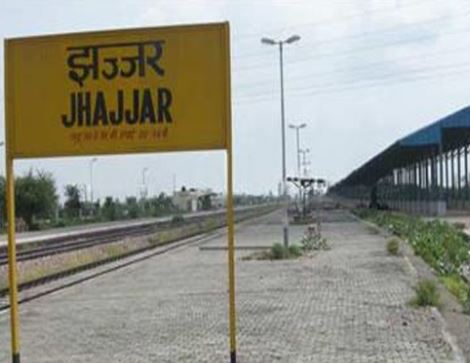 Amid fear of rampant spread of COVID-19 pandemic, news from a few districts has been a cause of relief and inspiration for the other districts.
Amid fear of rampant spread of COVID-19 pandemic, news from a few districts has been a cause of relief and inspiration for the other districts.
Jhajjar in Haryana is one such district where the local people have practiced patience and self-control during the lockdown with discipline combined with the effective arrangements made by the district administration during the first phase of the lockdown, resulting in not a single corona virus positive case here as yet.
Giving information on this, a government spokesman said that despite proximity with Delhi, which is considered to be a sensitive zone owing to the high incidence of corona virus cases, Jhajjar district has not reported a single positive corona virus case as yet. With a distance of merely 51-km from Delhi the reasons behind district Jhajjar was able to evade the highly contagious virus in this area goes back to its age-old practice of “Thikri Pehra”.
The awareness-level and sensitivity of the people of the area has played a foremost role in this as well. Considering the fact that the Janta Curfew, declared by Prime Minister Mr. Narendra Modi on March 22, it has been practiced in Haryana, especially in the area, in the form of “Thikri Pehra”. The custom of practicing “Thikri Pehra” and the far reaching efforts made by the district administration has acted as a protective shield which prevented the spread of the pandemic here.
Listing the efforts of the local administration, he revealed that the administration had identified all the grocery stores, vegetable shops and hawkers and milk distributors and registered them. These registered people were then issued passes. Also, their mobile numbers have been disseminated in every house by way of mapping. Apart from this, grocery and vegetable vendors of the entire district have been classified into 306 groups and collective passes have been issued to them for their work related movement.
Similarly, a survey of about 75,000 labourers and 6500 brick-kiln workers was conducted in the entire district in time by the district administration, which facilitated them to keep a tab on these workers. Fertilizer was delivered to them through non-government organizations and Red Cross. It is reported that 1,200 migrant workers, including children and women, have taken shelter in a total of 24 shelter homes in Jhajjar, Beri, Bahadurgarh and Badli in Jhajjar district during in the first phase of lockdown under COVID-19. Under the supervision of the administration, about 3.5 lakh food packets have been distributed to these shelter homes and other needy people through social and religious organizations. Also, weekly ration materials have been made available to about 3000 families till now.
He informed that for effective compliance of the norms of the lockdown the time of sale of essential commodities has been fixed in the district while maintaining social distancing. Grocery and fruit shops were opened from 7 am to 10 am and from 4 pm to 7 pm while the chemist shops remained open throughout the day and even at night according to the schedule. Meanwhile, other business establishments remain closed. He said that the district administration has closed the main vegetable market in both the cities of Jhajjar and Bahadurgarh for common people to avoid large gatherings.
The spokesman said that all the boundaries of the district Jhajjar have been sealed to prevent the movement of people to other states or districts. To ensure effective implementation of the lockdown a total of 75 nakas were put in the urban and rural areas of the district. All the police stations SHOs, including 75 PCRs and riders have been patrolling regularly day and night.












